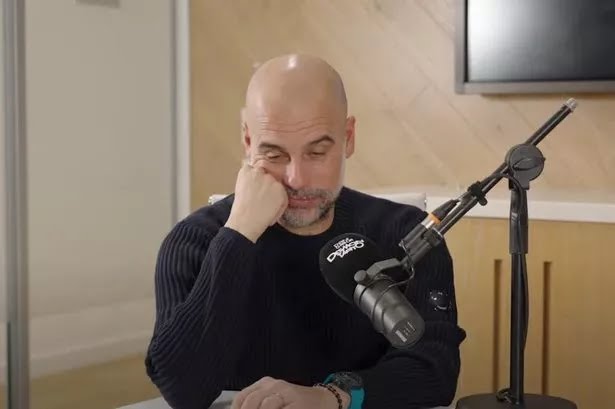
Manchester City manager Pep Guardiola has been at the helm of one of football’s most successful teams, but recent developments suggest that all may not be well at the Etihad Stadium. Reports of Guardiola contemplating an exit from the club have sparked widespread debate about the challenges facing City and the reasons behind the potential departure of one of the game’s most revered tacticians.
Guardiola’s decision to leave Barcelona in 2012, citing the need to recharge after four intense seasons, has often been referenced when discussing his managerial philosophy. Known for his meticulous approach and relentless pursuit of perfection, the Spanish coach demands the highest standards from his players and himself. At Manchester City, Guardiola has overseen a period of unprecedented domestic success, but the pressures of maintaining dominance appear to be taking their toll.
Recent signs of cracks in the City machine have fueled speculation. While the team clinched a historic treble last season, including their first-ever UEFA Champions League title, replicating such success is an enormous challenge. This season, City has faced uncharacteristic inconsistencies, with key players struggling for form and fitness. Star midfielder Kevin De Bruyne’s long-term injury has disrupted their midfield dynamics, while new signings are yet to fully integrate into Guardiola’s demanding system.
Off the pitch, the club is dealing with mounting scrutiny over alleged financial irregularities. City faces over 100 charges related to breaches of Premier League financial regulations, which could lead to serious repercussions, including points deductions or fines. Although Guardiola has publicly defended the club’s hierarchy, the ongoing investigation is undoubtedly a distraction for the team and its management.
Guardiola’s intense personality and high expectations often lead to burnout, not just for him but also for his players. His meticulous attention to detail and constant innovation demand unwavering commitment, which can become exhausting over time. Guardiola has previously hinted at the difficulty of sustaining long-term success at a single club, suggesting that his departure could be a strategic move to avoid stagnation.
The demands of competing at the highest level have also led Guardiola to reassess his priorities. Known for his passion for football, he is equally conscious of the personal sacrifices that come with managing a top-tier club. Guardiola has spoken openly about the mental and physical strain of the job, hinting that stepping away might be necessary to recharge and focus on other pursuits.
City’s recent performances have highlighted areas of concern. Opponents have begun exploiting tactical vulnerabilities, and while Guardiola’s ability to adapt is unmatched, sustaining dominance requires continuous evolution. The team’s reliance on Erling Haaland for goals has made them predictable at times, and defensive lapses have cost them crucial points in the Premier League.
Amid these challenges, Guardiola’s potential departure raises questions about Manchester City’s future. The club’s recent successes have been built around his vision, and replacing a manager of his caliber is no easy task. Guardiola’s influence extends beyond tactics, shaping the club’s philosophy and identity. A change in leadership could disrupt the stability that has defined City’s rise to prominence.
For Guardiola, leaving Manchester City would mark the end of an era, but it would also open new doors. His legacy is secure, with multiple league titles, domestic cups, and a Champions League trophy to his name. However, his ambition and desire to tackle fresh challenges could see him pursue opportunities elsewhere. Whether it’s managing a national team, returning to Barcelona, or exploring a different league, Guardiola’s next move will undoubtedly be closely watched.
The timing of his departure could also reflect broader shifts in football management. Modern coaches face unprecedented pressures, with tighter schedules, increased media scrutiny, and higher expectations. Guardiola’s career path highlights the need for balance, demonstrating that even the most successful managers must prioritize their well-being to sustain their passion for the game.
As Manchester City navigates this uncertain period, fans and pundits alike will be watching closely. Guardiola’s decision, whatever it may be, will have far-reaching implications for the club and the football world. For now, his focus remains on steering City through a challenging season, but the question of his future looms large.
If Guardiola does choose to leave, it would signal the end of a golden era at Manchester City. Yet, it could also serve as a reminder of the cyclical nature of football. No team or manager remains at the top forever, and success is often followed by reinvention. For Guardiola, his next chapter may bring new challenges and opportunities, while City faces the task of building on his extraordinary legacy.
Leave a Reply